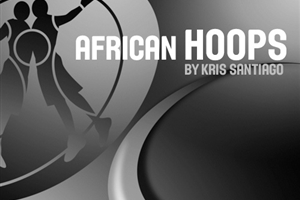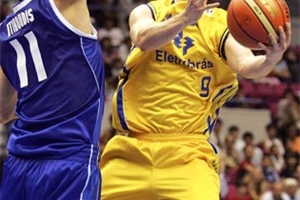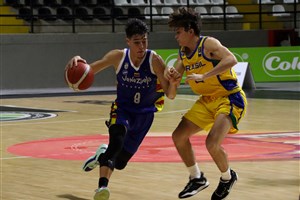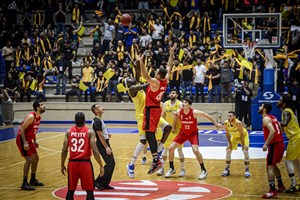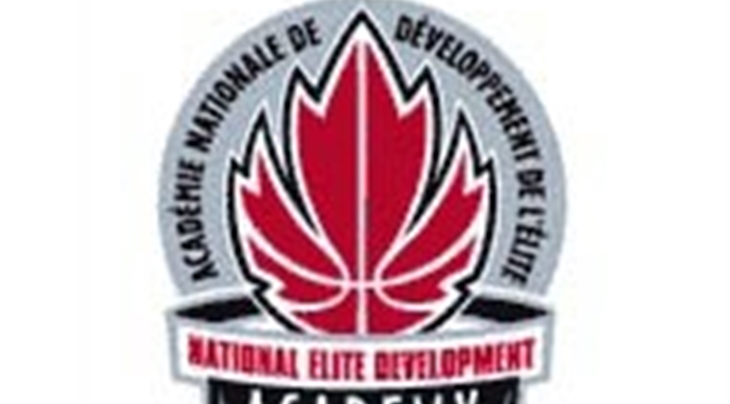
CAN – Francis reviews Canada’s plan for development
MANNHEIM (NEDA) - France and Australia are well known for their centralised programs to help develop elite young basketball talent.
The French use INSEP while the Aussies have the Australia Institute of Sports.
Using both systems as a model, Canada basketball officials founded the National Elite Development Academy (NEDA), bringing together 12 of the top development athletes aged 15-18 years from across the nation.
After the girls started in 2006-07, the boys program tipped off last September at McMaster University in Hamilton, Ontario.
The head of the NEDA program is former Canada international Greg Francis, who played at the 2000 Olympics along with Steve Nash when the country finished seventh.
Francis serves as the men’s national development coach and has worked as an assistant coach to the senior national team.
Francis also spent March coaching Canada at the Albert Schweitzer Tournament, where the North Americans surprised many by finishing fifth in their second appearance at the Mannheim, Germany event.
Francis talked with FIBA about Canada's showing at Schweitzer and the NEDA program.
FIBA: Hi Coach Francis, this is the second time you have led Team Canada at the Albert Schweitzer Tournament. What are your thoughts on the event and what it provides your young players?
Francis: The most important thing for professional players is to have experience. It's great for these kids to travel and play against different teams with different styles. There's nothing better for a young player than to play at this level. And even from a coaching standpoint, it's great to play against these teams.
FIBA: Canada faced top nations like Russia, Australia, Italy, Turkey and Argentina. That must be some great experience.
Francis: Yeah, to see the different levels of athletes here is amazing. They are high school age but they have a lot of ability and a lot of talent, and you see a lot of countries getting very serious about their development.
FIBA: This was your second time at the Schweitzer event. So you have been able to develop an idea of where the differences are between where is Canada at this age level. How do you see that development?
Francis: We're working at it and doing a lot better. But at the same time, you can see the class of the French system and Australian system in terms of their developement. They have world class results very consistently. And I think that's where we're trying to get in Canada - get to a level with more consistency and get a chance to qualify for Olympics and World Championships more often and get better results. It's exciting to be part of the development stage and get those players to the next level.
FIBA: You mentioned the French and Australian systems. Canada have now founded the NEDA. What's it like to compete against those nations?
Francis: You look at all the young talent from all those programs. But we're just starting to have a centralised program in Canada. We look at them as a model and it's great to compete against them as well because we're just starting to train and it's good for the young players.
FIBA: What can you tell us about the NEDA Program?
Francis: This is the first year with the boys and basically we said we're going to work on training and not do it through the high school system where it's very difficult to develop elite athletes. These 11 athletes have committed to training at the highest level. And they've really improved a lot in this one year. Two years ago we came and I think we opened some eyes. But at the end of the day we came in 15th. So we're in a situation now where we want to get better results. And I think you get better results through training. And the system they have at AIS is more training and less games and I believe is a recipe for better players.
FIBA: What do you see as the difference between the INSEP, AIS and NEDA programs?
Francis: Right now, they've been doing it for 20 to 30 years, have really good budgets and really just have a good idea about what they want to do for the long term. It's hard in North America to think in the long term because everybody wants to win the junior championship, the high school championship, the regional championship. And it's really got to be about development. And these other countries have really done a much better job with that. And now we're trying to catch up.
FIBA: What are some of the goals of the NEDA program?
Francis: It's basically the last two years of high school and then the kids can go away to university in Canada or the U.S. We just take that time to really prepare them to be not only good international players but good university student athletes.
FIBA: So is the NEDA basically Canada's U18 team for international competitions?
Francis: We still have tryouts for the actual team, but a big part of the team will come from this group of guys. And then there will be other athletes from around the country with the chance to earn a spot on the team.
FIBA: What is the state of the national team in general?
Francis: I think we have chance if we train properly to be right there whether it's the juniors or the senior national team. We definitely have to train more. And I know it's a difficult for all the countries to get enough practice time for the team players because you know players are playing all over the world - whether it's university or professional.
FIBA:: For some of our readers who may be looking for an update on some of the young guys at the 2006 Albert Schweitzer Tournament, can you tell us where some of those top players are?
Francis: Junior Cadougan, who is from the age group here and will have an opportunity to try out for this team, is in high school in Texas. Olu Ashaolu went to Louisiana Tech. Our center Robert Sacre went to Gonzaga. Our starting wing man Jon House is playing for Belmont and just barely got beat by Duke in the NCAA tournament. A lot of our players end up going to university like I said - some in the States, some in Canada. We just want to prepare them for that. That group did quite well after they left here. And I think this group has a chance to do the same and go on to have successful careers.
FIBA: Who so you see as some of the top guys from this age group?
Francis: We went to the FIBA U19 World Championship last year (finished 10th) and this group has a chance to qualify as well. With this type of experience hopefully we can do better. Probably the guy with the biggest improvements has been Mangisto Arop. And Mike Allison really learned to play against some other players his height, and I'm really excited for him because he's going to be able to take the things he's learned here and apply them back home.
FIBA

